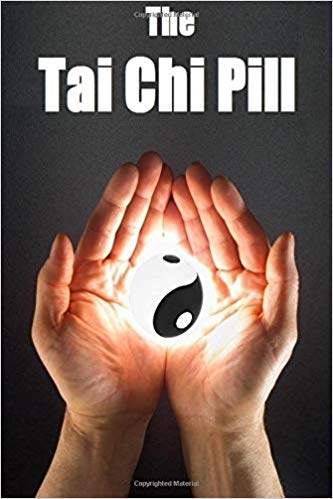December 23rd, 2018
Contributing writer for Wake Up World
Undoubtedly, an important remedy for our world today is for people to start thinking on different lines than the status quo and the majority; different lines than the embedded thinking that has brought both our society and the ecosystems we depend on to the brink of collapse. Our challenge is that most people see matters in terms of their own perspective or even selfish benefit, even though the terms they think are to their benefit are also to their detriment — such as the example of commercial globalization, which provides people with cheap convenient access to resources and products but to the detriment of personal self-sufficiency, local economies and our environment, which are ultimately of detriment to people and their quality of life.
So why don’t more of us look beyond the perspective of the self and the status quo of the majority?
In today’s world, we are bombarded by polarized, dualistic thinking — the constant opposition of competing ideas, right/wrong, good/evil, left/right, thesis/antithesis — thinking that leads to separation not integration, contention not unity. We are immersed in mediation, steeped in opinions, steered by cultural and religious traditions – and governmental persuasions posing as such traditions, as well as an assortment of advertisements, distractions and institutional influences both overt and covert. We are so deeply inundated by such we all most frequently are prevented from observing reality unobscured by the obscurations of the status quo, of which we are mostly unaware.
People are deflected by their own opinions blocking their view — mostly, opinions that are inherited from traditional thinking or modern institutional influences like media, government and business. Their diverse near-drowning overtones all contain the commonality of steering individuals toward the opposite direction of self-development, toward institutional dependence by some mode or another. The government prefers you disempowered and obedient, corporations prefer you needing and wanting, and the media prefers you confused and convincible.
One of the most obvious and pertinent obscurations relates to the religions of the world, but more specifically than the religions of the world, the monotheist institutions of the world. The coordination of ideas with the veracity of God and God’s institutions adds a bit of steadfast certainty to the said opinions and ideas, no matter the religion, but when ideas are engaged in monotheist tone, a whole new set of certainty results — a certainty refuting all else.
Monotheism is commonly understood to mean the belief in one God. This is in fact an incorrect understanding. Monothesim is not the belief in one God for Hinduism arguably believes in one God, only limitless in potentiating itself among numerous forms of godliness and living beings, with numerous versions of envisioning, celebrating and perceiving God. Monotheism is the belief in only one way to perceive God. In essence, monotheists believe there is but one way to perceive God, and that those who practice other ways of relating to God and experiencing their spirituality are heretics, fools, liars, and so on.
Again, this is thinking that leads to separation not integration. It is both a philosophical and mathematical absolute that if you split one among some, you have automatically created division, at least two parts. The abstraction of the one way to do a thing, one way to reason a thing, one way to perceive a thing, creates divisive polarity: right/wrong, good/bad. When it comes to money, it creates another polarizing dynamic: rich/poor.
Monotheism and Money
In a culture steeped in consumerism, politicism and scientism, and completely detached from its spirituality, money is the new “one true God”. Most people — and indeed our entire destructive culture — measure things via the bottom line, quantifying decision making in monetary terms, not social, ethical, moral, spiritual, etc. Many others hold just as steadfastly to other modalities that are justified by one sort of monotheist teaching or another — one “right way” to think, be and do in areas as diverse as medicine, religion, social justice, political reform, or scientific discovery. This has led to a polarized society in conflict with itself, a society unable to make any genuine progress forward.
The monothematic stances prevalent today, no matter their diverse perspectives and objectives, share a very stark commonality; justification of monothematic directions based on monotheism or money. And this is true no matter who the institutional leader is: recently US President Trump most starkly declared that the murder of a US based Saudi journalist was no reason to cut off arms sales to Saudi Arabia, and in the past President Bush II infamously stated ‘Money trumps peace’ — just like so many leaders and authoritarian figures before them.
“Not everything that counts can be counted, and not everything that can be counted counts.” — William Bruce Cameron (often attributed to Albert Einstein)
So before you find yourself justifying an idea with the limited thinking of monotheism and money, understand that there is some serious conditioning being perpetuated here. There may be a singular godliness in the limitlessness, however there is more than one way to perceive God. There may be an easy way to quantify energy exchanges using money, however it is not the only way of measuring value in our society. The fact that you may not yet see or understand it just shows how strong our social conditioning is.
Monotheism and money steer monothematic thinking and being, no matter its variation, no matter who their messiah is and no matter if they await a messiah or not. The polarized thinking that characterizes monotheism and money create monothematic mind states, distorting the authentic nature of humanity. But there is more than one way to perceive a subject or object; and whenever someone states there is only one way to see a thing, they are mistakenly limiting and narrowing their own perspective.
Monotheism is a limited mode of thinking, and today, money is its fuel. The one eye of mon ey(e) subjugates modes of thinking and being other than the institutionalized status quo. Mon o theism subjugates all other ideas and expressions but the one-way ism, deism, idealism, and corporatism subjugating alternatives to the status quo in entirety. There is more than one way to see, do and say the same thing.
The Tai Chi Pill
The Tai Chi Pill is a Tai Chi lesson that will enable you to help yourself. It contains principles, practices and philosophy to enable you to change patterns and enhance the quality of your being.
The Tai Chi pill is an easy to swallow Tai Chi lesson for beginners, with practices and principles which enable you to take Tai Chi into your world without learning a long form. The Tai Chi Pill also contains philosophy that long time practitioners will find applicable to their own practice.
“There is no wrong way to practice Tai Chi, there are only more correct and more refined ways.”
The Tai Chi Pill is available on Amazon now.
About the author:
Activist, author and Tai Chi teacher Ethan Indigo Smith was born on a farm in Maine and lived in Manhattan for a number of years before migrating west to Mendocino, California. Ethan’s work is both deeply connected and extremely insightful, blending philosophy, politics, activism, spirituality, meditation and a unique sense of humor.
You can connect with Ethan on Facebook, check out his author page on Amazon, or visit his websites, Geometry Of Energy and Meditation 108, where Ethan offers lessons on individuation, meditation, the conceptualization of energy, and the metaphysical significance of 108.
Ethan’s books include:
- The Geometry of Energy: How to Meditate: Simple and profound, this book offers an empowering four-step meditation, focused through the sacred dimensions of geometry.
- The Little Green Book of Revolution an inspirational book based on ideas of peaceful revolution, historical activism and caring for the Earth like Native Americans.
- Meditation and Geometry for The Youth: A short and sweet book to introduce young people to meditation and sacred geometry, in a simple format for the youth and youthful alike.
- 108 Steps to Be In The Zone, a set of 108 meditative practices for self discovery and individual betterment, including techniques to develop balance, transmute sexual energy.
Recommended articles by Ethan Indigo Smith:
- Tibetan Rites of Rejuvenation: a Guide to Meditation and Breath
- Understanding Ascension: The Geometry of Energy
- The Mandala: The Sacred Geometry of Meditation
- The Common Origins of Religions and Theology
- Aum Mani Padme Hum: The Integration of Duality and Polarity
- Guardians of the Earth Unite! American Indian Prophecy, The Medicine Wheel, and The Four Sacred Directions
- The Spiritual Golden Rule
- Meditation Comprehension for the Youth
- Meditation 108: A Guide to Meditating for the Infant Practitioner
- Walls and Wars – Overcoming the Instincts of Hive Consciousness

If you've ever found value in our articles, we'd greatly appreciate your support by purchasing Mindful Meditation Techniques for Kids - A Practical Guide for Adults to Empower Kids with the Gift of Inner Peace and Resilience for Life.
In the spirit of mindfulness, we encourage you to choose the paperback version. Delve into its pages away from screen glare and notifications, allowing yourself to fully immerse in the transformative practices within. The physical book enriches the learning process and serves as a tangible commitment to mindfulness, easily shared among family and friends.
Over the past few years, Wake Up World has faced significant online censorship, impacting our financial ability to stay online. Instead of soliciting donations, we're exploring win-win solutions with our readers to remain financially viable. Moving into book publishing, we hope to secure ongoing funds to continue our mission. With over 8,500 articles published in the past 13 years, we are committed to keeping our content free and accessible to everyone, without resorting to a paywall.










